Team RWW in Silicon Valley and a Tense Meeting With My COO
The day after our first conference in October 2009, the ReadWriteWeb bloggers socialise at a Palo Alto bar. It's not all fun and games though, because I need to make some changes at RWW.
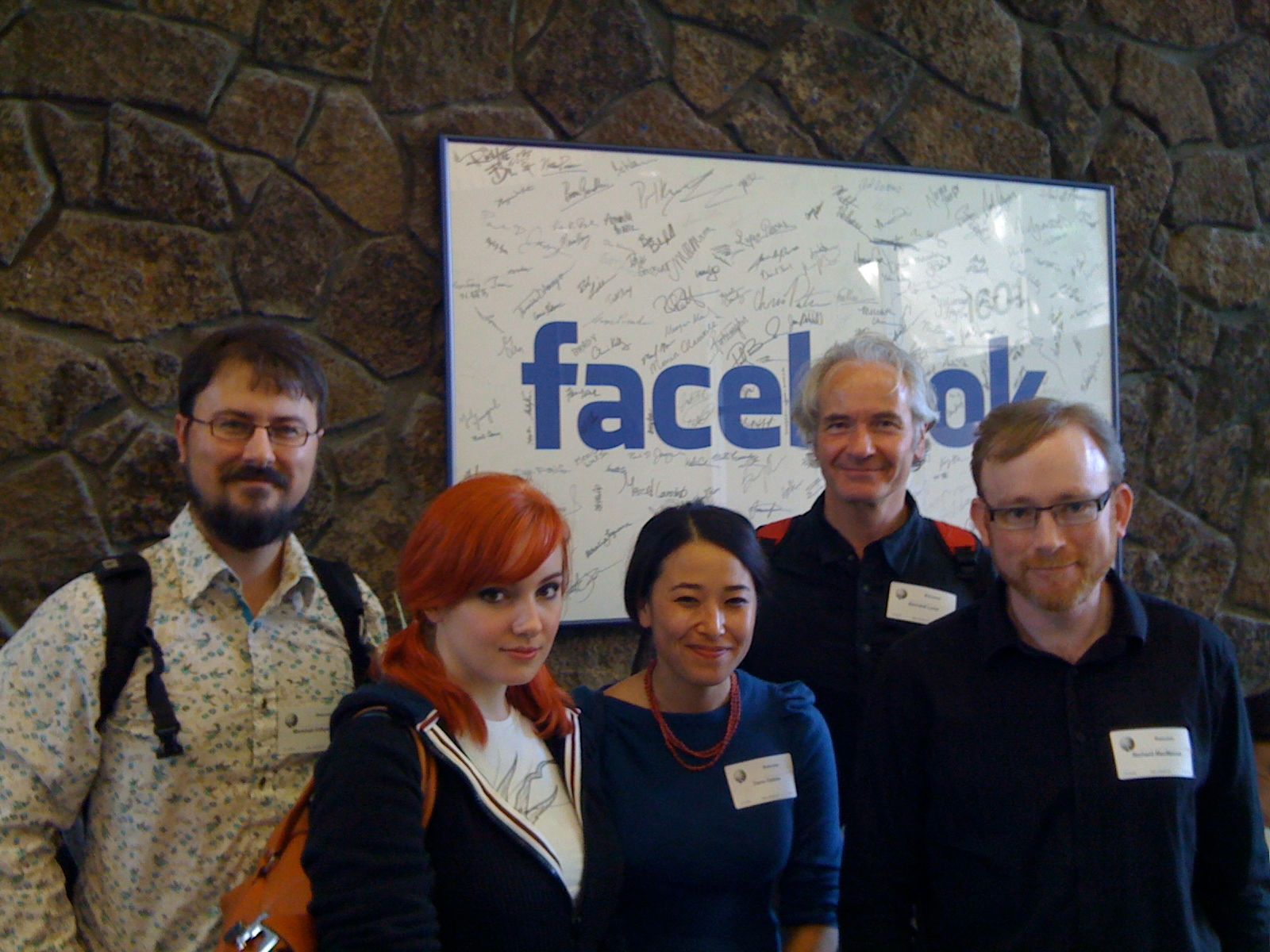
The day after the ReadWrite Real-Time Web Summit, a Friday, the RWW team met up at the Red Rock café in Mountain View to work and debrief. I also took the opportunity to have one-on-one meetings with each of our bloggers present: Frederic, Jolie, Dana, and Alex. I’d be doing the same with Bernard and Marshall tomorrow, as well as having other management meetings. But the Friday was about getting to know my writers better and setting goals for them.
Frederic and Jolie had both impressed me in the lead-up to the event, and I wanted to hire them both full-time. Frederic was a relatively quiet person, but he was hardworking and probably our best daily blogger at that point. Jolie was more inconsistent in terms of post quality, but she had a terrific personality and was clearly very smart. Dana was still a bit of a mystery to me in terms of her fit with RWW. She wasn’t getting the page views that the likes of Frederic and Jolie regularly got, and she seemed to have bigger plans for her career than simply being a blogger. But everyone liked her, and I told her we might be able to expand her role a bit with ReadWriteStart, as she was keen to engage with the startup community more. (In later years, Dana moved into venture capital and eventually became a partner at one of these firms—so she was destined for bigger things.)
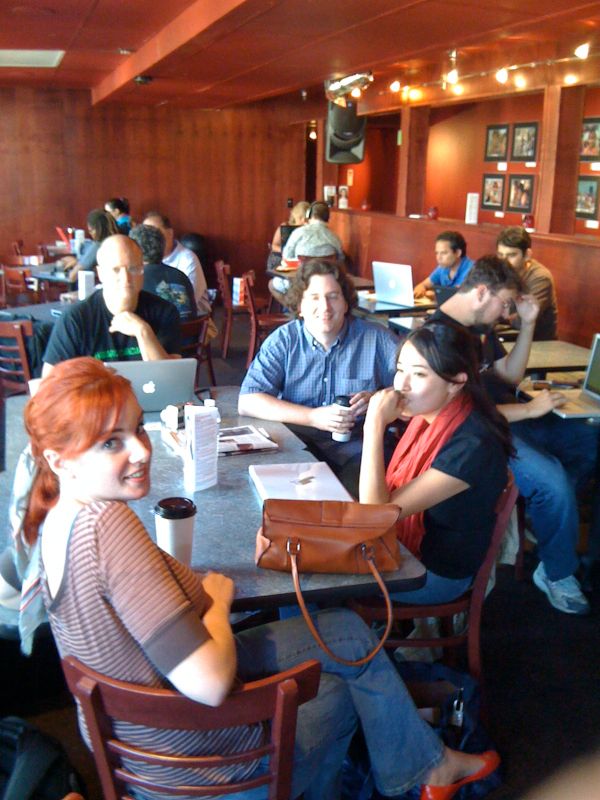
As for Alex Williams, our newest team member, he was already a solid performer. I’d hired him at the end of September to take over ReadWriteEnterprise. It turned out he was Marshall’s best friend, although I hadn’t realized that until Alex was on the shortlist with one other person. Marshall hadn’t wanted to influence the decision, and indeed he didn’t: Alex was the preferred candidate by that point, given his journalism background and experience writing about enterprise topics. I also saw that he had a lot of initiative and seemed very involved in the emerging cloud computing community. This would stand him in good stead—five years later he founded a cloud news and analysis site called The New Stack, which I ended up working for in 2020.
When I first met him, in October 2009, I didn’t know much about Alex. He was about seven years older than me and was balding, with a big-boned stature. He seemed friendly enough but often wore a serious expression—sometimes even dour—and so I didn’t quite know what to make of his personality. In our one-on-one at Red Rock, he opened up and we got to talking about things like baseball (which he followed with a passion) and our respective kids.
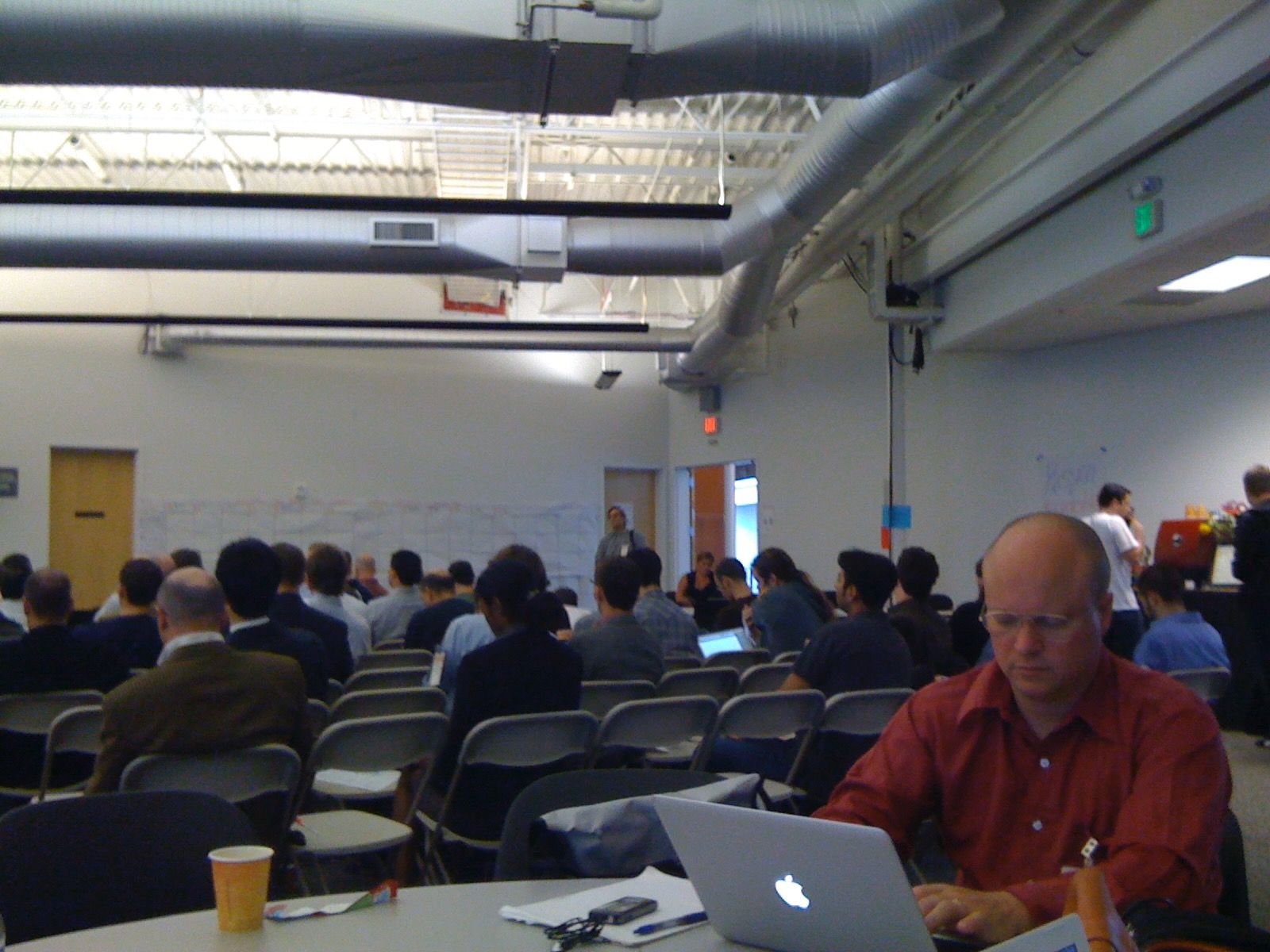
At some point during our meeting, Alex brought up his background in podcasting. Sean’s ReadWriteTalk podcast had been on pause for the past six months, since he was so focused on his own startup, but Alex was keen to resurrect it. He told me he’d coproduced the first Gnomedex podcasts with Doug Kaye in 2005 and then ran an event called Podcast Hotel that same year. I was interested in the podcast idea, but I told him my main priority was to ensure that the troublesome Enterprise channel got some momentum at long last. The previous writer for the channel, Steven Walling, had ultimately been a disappointment, so I was hoping that Alex would turn it around—and certainly I’d been impressed by his posts so far.
Later that afternoon, the team and I took the Caltrain from Mountain View to Palo Alto. It was only three stops away, but somehow we got off at the wrong stop, so it actually took us two Caltrain rides to make the short journey. Perhaps our brains were all fried by this point in the busy week, but we eventually found our way to University Avenue.
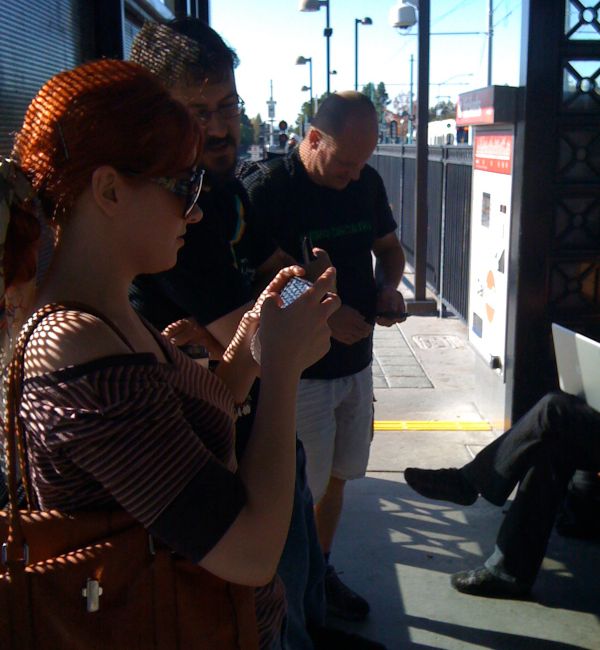
We stopped off at University Café, which a couple of us knew was an iconic Silicon Valley spot—it was where Mark Zuckerberg had first met the legendary angel investor Ron Conway about five years earlier. It was a clear day, so we took one of the tables outside and talked more about Silicon Valley lore.
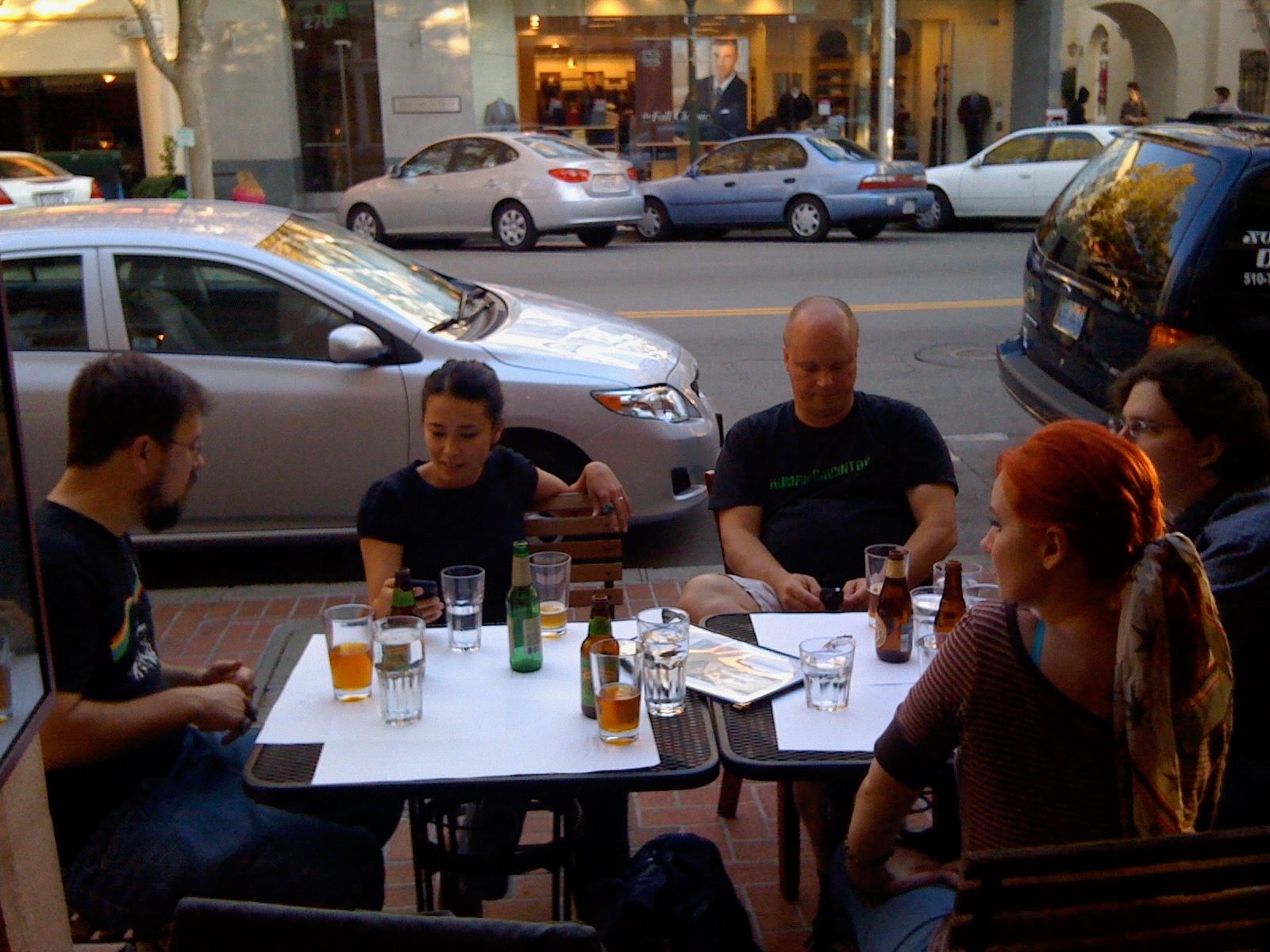
After that, we walked to a local sports bar and played some pool. We stayed there into the evening and at one point recorded a video to send to Sarah, who was about to have a baby in her home city of Tampa, Florida. I don’t recall whose idea it was, but we passed around Alex’s phone and each of us recorded a message for Sarah. “We’re having a good time,” I said during my portion of the video, “and it’d be great if you were here as well, to complete the editorial team.” But obviously, I added, she was somewhat occupied right now. I hadn’t yet met Sarah in person, so I finished with, “I’m sure we’ll get to meet face-to-face at some point in the near future, so take care and we’ll catch up with you online pretty soon.”
The camaraderie of the team at this moment was something special. We were missing Sarah, but otherwise it was great to spend time, in the physical world for once, with my fellow bloggers. I wasn’t yet worried about losing any of them to competing blogs, although that would happen in the not-too-distant future. For now, though, we were Team RWW, hanging out at a Palo Alto bar with Facebook employees and other local techies. We were part of the Silicon Valley scene, for that one night at least.
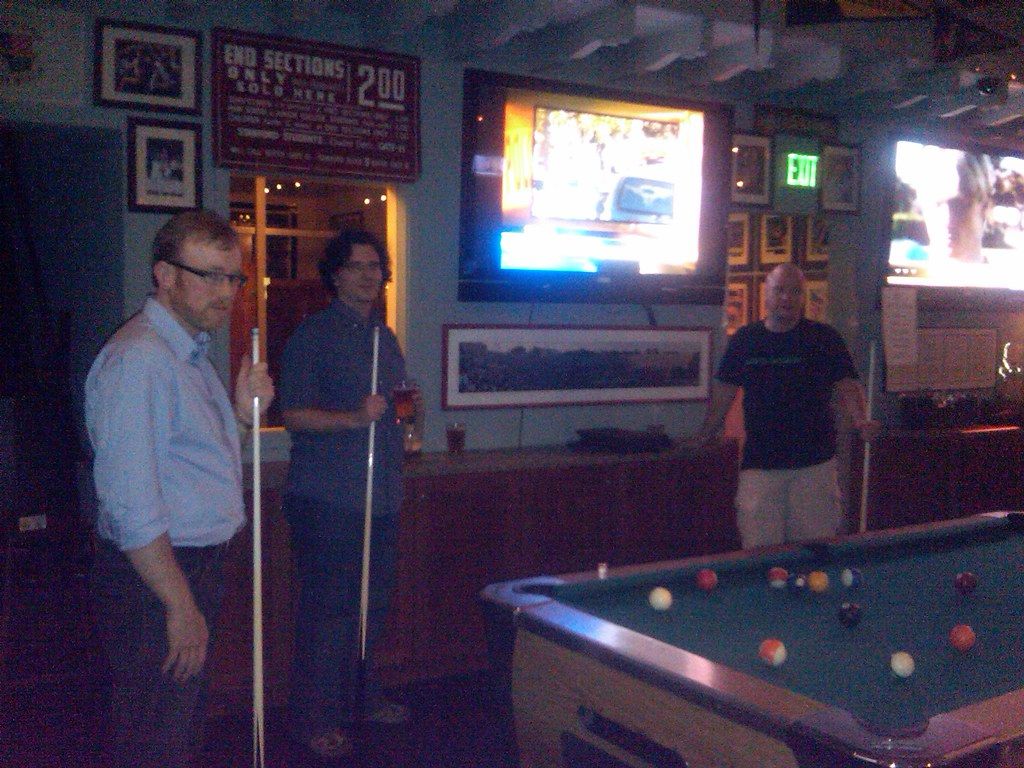
A Tricky Discussion
The next day was another clear, sunny California day. In the morning, Bernard, Marshall, and I met up in downtown Mountain View for our scheduled management meeting—and also my one-on-ones with each of my lieutenants. I knew the one with Bernard might get awkward, and I was anxious about that.
I liked Bernard personally, and from a strategy perspective he was always full of good ideas. He’d also been a sage business adviser to me during the acquisition negotiations with ZDE and TechWeb last year. But since he'd come on as COO about ten months earlier, a continuing lack of structure in the business had been bugging me. As COO, his role was to make sure that our daily operations were well-planned and finances kept in order. But it still felt too chaotic for my liking: the amount of time it took for us to get ReadWriteEnterprise off the ground, the ongoing issues with our publishing platform and web hosts, the unpredictable revenue flow from FM Publishing and our sponsors, the lack of a budget, and now the event planning.
The unconference had undoubtedly been a success from a content and community perspective, but there had been several communication breakdowns while planning it and I didn’t yet have a clear idea of how it had done financially. While that wasn’t all on Bernard, it was (I thought) the COO’s job to put structure around a big project like this—to have a solid budget and documentation around the action items. But that hadn’t been the case.
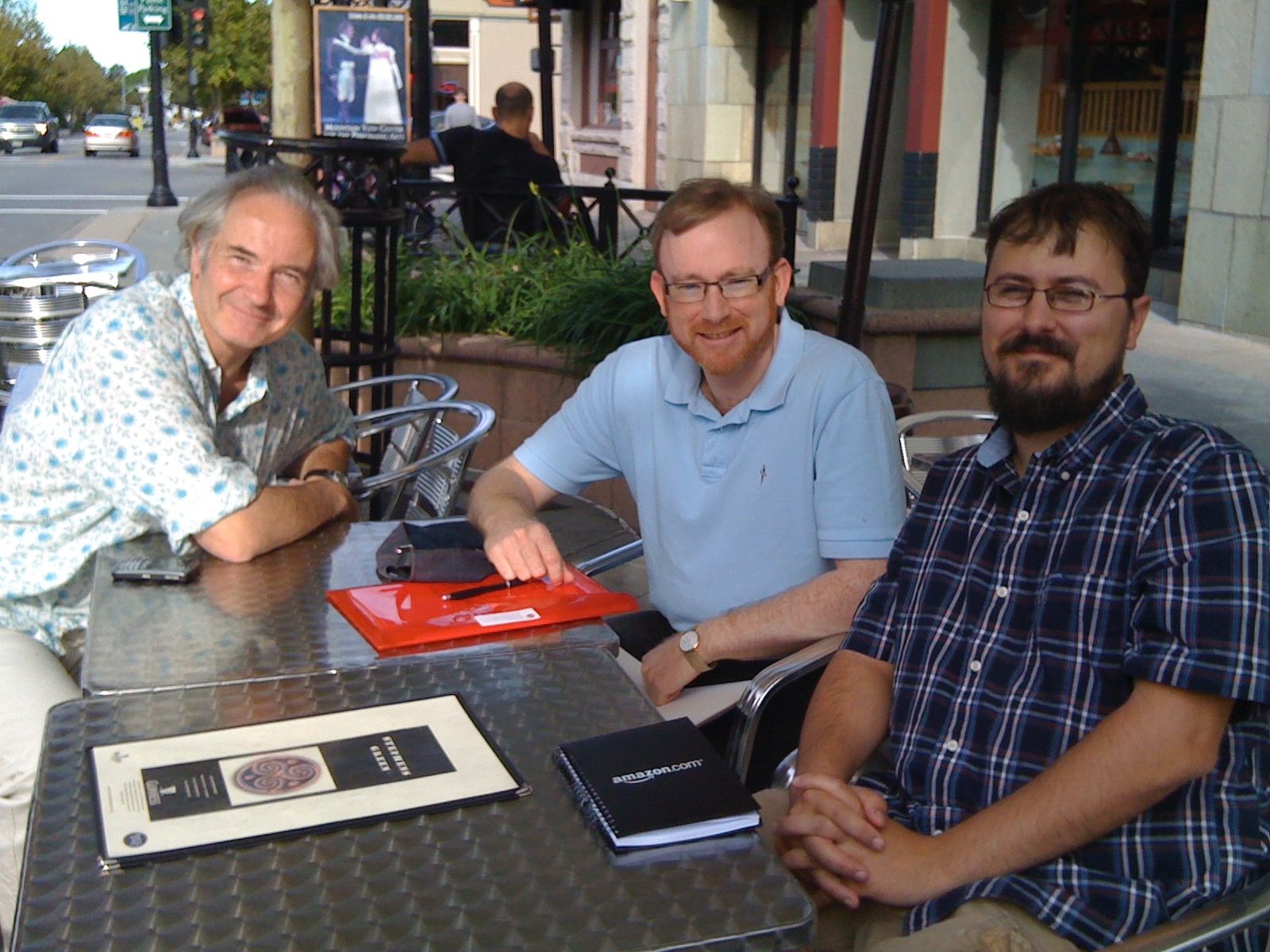
Elyssa had been my sounding board for the past month on what to do about all this. After discussing it with her before the unconference, back in New Zealand—usually, it must be said, over dinner, wine, and the odd cigarette on the back porch of her house—I had decided to write up a set of KPIs (key performance indicators) and business processes to present to Bernard. I came up with five KPIs, the first three of which were revenue-based. The other two were about achieving “operational efficiency,” by which I simply meant making a plan for everything—budgets, resources, a process for report sales, and so on. To give but one example, I wanted our financials to be better managed, with the KPI “ensure that ReadWriteWeb has a fully fleshed out and regularly tracked budget in place (including revenue lines and projections) and that the company is using Xero [our accounting software] in a complete and efficient manner.”
During our one-to-one meeting, Bernard dismissed the KPIs as “micromanaging.” I pointed out that annual revenue goals aren’t exactly “micro.” I also said that I wanted to be regularly updated on operations, so I asked him to start sending me a weekly report—I added that I’d be asking the same of Marshall in his role. Not surprisingly, he bristled at this too.
The meeting was tense, but I held firm that the business operations needed more structure—which was the COO’s job to implement. At the same time, I tried to stay positive about his personal strengths. I said that while systems and processes didn’t appear to be his forte, I knew he was strong in business development and sales. I politely suggested that business development might be a better role for him at RWW.
Bernard was having none of that. He didn’t want a demotion—in fact, he then began angling to become CEO! (I had to admire his commitment to the bluster.) He talked about the need for RWW to raise money in order to compete and that this would mean forming a board of governors. I told him I was open to that, but I didn’t want him as CEO—especially when we couldn’t even agree on the role of COO. In reply, he said that if we raised money, “the board” would choose the CEO, not me. By this point I was exasperated, and we didn’t come to an agreement over the KPIs for his current role.
I emailed Elyssa later that day. “I honestly think the next step is a ‘take it or leave it’ type meeting,” I wrote. “Either he agrees to the KPIs and doing weekly reports etc. . . . or he finds another job.”
This post is part of my serialized book, Bubble Blog: From Outsider to Insider in Silicon Valley's Web 2.0 Revolution. View table of contents.
Next up: 044. Web 2.0 Summit 2009 and ReadWriteWeb Hires New COO
Buy the Book
My Web 2.0 memoir, Bubble Blog: From Outsider to Insider in Silicon Valley's Web 2.0 Revolution, is now available to purchase:
- Paperback, US$19.99: Amazon; Bookshop.org
- eBook, US$9.99: Amazon Kindle Store; Apple Books; Google Play
Or search for "Bubble Blog MacManus" on your local online bookstore.